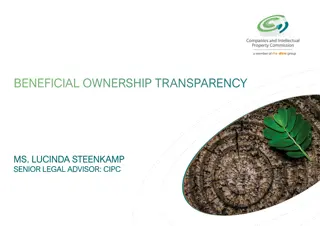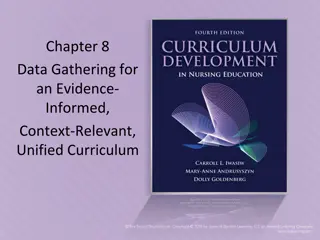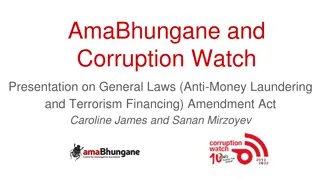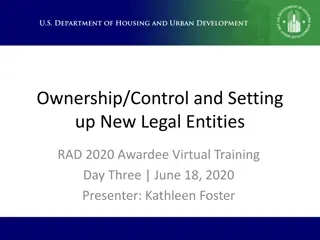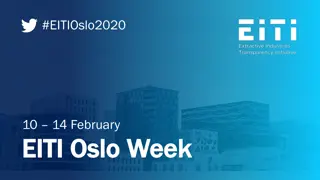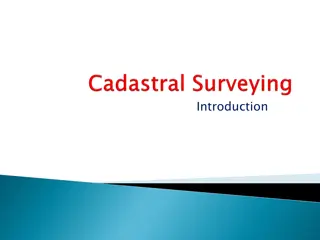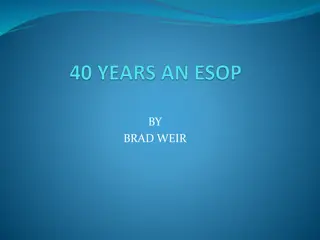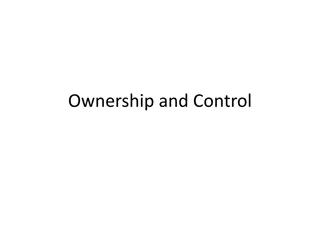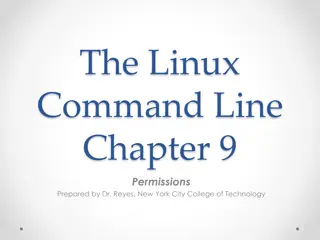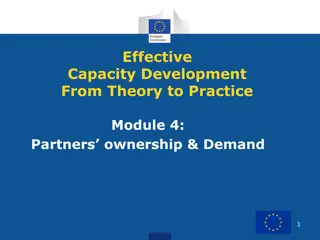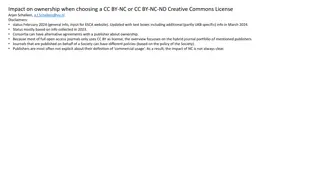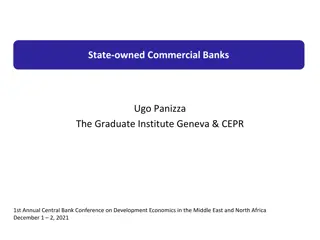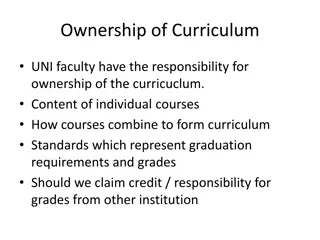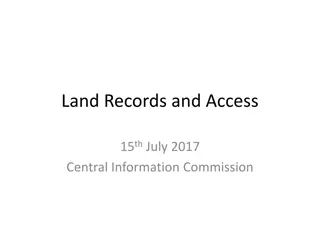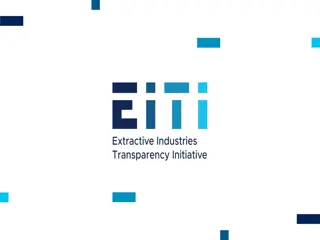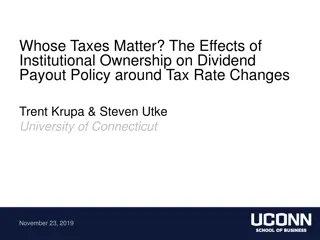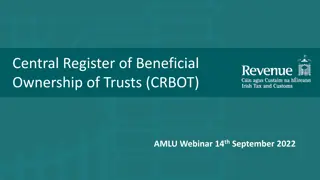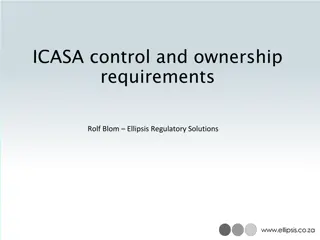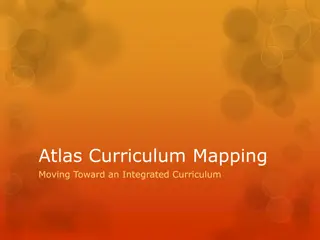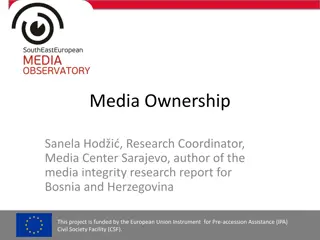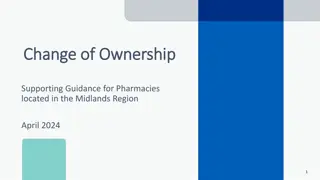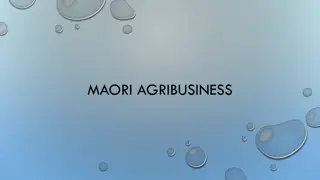Knowledge and Curriculum
Various forms of curriculum, the importance of curriculum, new trends in education, and the relationship between power and ideology in curriculum development. Understand the role of the state in curriculum development and the impact of meritocracy on the curriculum.
2 views • 16 slides
Knowledge and Curriculum
The principles of curriculum development to improve education quality, align curriculum with teaching methods, and meet student needs. Discover how innovative curriculum design influences learning outcomes and fosters independent thinking. Curriculum planners play a crucial role in creating effectiv
1 views • 21 slides
Unpacking the New ELAL Curriculum for Grades 4-6
In the spirit of reconciliation, acknowledgment of traditional Treaty lands in Alberta is highlighted, emphasizing the importance of understanding Indigenous history. The journey to the new curriculum is depicted along with the direction for curriculum development in Alberta, focusing on promoting s
1 views • 50 slides
Enhancing Beneficial Ownership Transparency: CIPC's Response to FATF Requirements
The Companies and Intellectual Property Commission (CIPC) in South Africa has taken significant steps to address deficiencies highlighted by the Financial Action Task Force (FATF) by establishing a Beneficial Ownership Register. Through this register, CIPC aims to collect accurate information on ben
1 views • 17 slides
BENEFICIAL OWNERSHIP TRANSPARENCY
South Africa's CIPC is addressing deficiencies in beneficial ownership transparency, as highlighted in the October 2021 Mutual Evaluation Report. The country faces increased monitoring due to being placed on the FATF Grey List. CIPC is mandated to establish a Beneficial Ownership Register to ensure
0 views • 16 slides
GRONDDELEN democratiseert grondbezit - Korte introductie en overwegingen
GRONDDELEN is working towards democratizing land ownership in the Netherlands, particularly focusing on agricultural land. The initiative aims to involve citizens in land ownership and management, highlighting the benefits of collective ownership and investment. The rise in interest in nature-inclus
4 views • 15 slides
Understanding Contextual Factors in Curriculum Development
This chapter delves into the significance of internal and external contextual factors in shaping curriculum development. It discusses the process of gathering essential contextual data, identifying relevant sources, and integrating data to create an evidence-informed, context-relevant, unified curri
5 views • 31 slides
Overview of Victorian Curriculum F-10 Mathematics Curriculum Revisions
The Victorian Curriculum F-10 is being revised to incorporate content from the Australian Curriculum Version 9.0 with the aim of making it more manageable and aligned with Victorian priorities. The revisions focus on ensuring efficient implementation, strengthening student access to essential knowle
10 views • 23 slides
Enhancing Anti-Money Laundering Laws for Beneficial Ownership Transparency
Presentation by AmaBhungane and Corruption Watch focuses on amending laws to define and disclose beneficial ownership in South Africa, emphasizing the need for clear definitions, low thresholds, and a risk-based approach. Recommendations include a consolidated register, stronger sanctions for compli
1 views • 9 slides
Legal Entities and Ownership Control in RAD Awardee Training
Explore the nuances of ownership, control, and legal structures in the context of RAD 2020 Awardee training, covering topics such as governing corporations laws, unique ownership requirements, RAD statutes, and implications of ownership changes. Learn about the RAD Ownership/Control Matrix and third
0 views • 28 slides
Understanding Shamilat-e-Deh: Common Village Land Ownership in Pakistan
Shamilat-e-Deh refers to common village land in Pakistan jointly owned by landowners for community purposes. This traditional system dates back to British rule in the subcontinent and involves shared ownership of resources like mosques, schools, and grazing lands. Landowners' shares in Shamilat are
1 views • 16 slides
Understanding Beneficial Ownership Requirements in EITI Standards
The EITI Standard requires countries to disclose the beneficial ownership information of oil, gas, and mining companies by January 2020. This includes details of the beneficial owner's identity, nationality, and any politically exposed status. Maintaining a public register of beneficial owners is re
0 views • 13 slides
Understanding Cadastre and Cadastral Surveying
Cadastre is a system containing land information, while cadastral surveying involves defining property boundaries and land ownership rights. Cadastral surveys subdivide land parcels for ownership and document property ownership with geometric descriptions. Real property ownership denotes the authori
2 views • 17 slides
Cooperative Ownership and Democratic Participation in Economic Models
Explore the principles of cooperative ownership, democratic participation, and economic models as advocated by Jessica Gordon-Nembhard. She emphasizes the historical significance of collective work, indigenous cooperative efforts, and the values of shared risk and surplus sharing in community-owned
0 views • 71 slides
Understanding ESOP: Ownership Structures, Basics, and Culture
Exploring the Employee Stock Ownership Plan (ESOP) in depth, covering ownership structures including family-owned, partnerships, and outside investors. Delve into ESOP basics such as ERISA and Department of Labor regulations, as well as the structure involving trustees, Board of Directors, and compa
0 views • 7 slides
Understanding Academic Journals: Ownership, Operations, and Processes
Explore the inner workings of academic journals, including ownership by the academic community, key operational structures, and the review process timeline. Gain insights into reputable vs. predatory publishers, implications of ownership, and the roles of editors, reviewers, and policy boards.
0 views • 17 slides
Recertification and Assessment of Core Curriculum Courses
The Core Curriculum Council of the Faculty Senate presents a process for recertification and assessment of core curriculum courses to maintain integrity and quality. Courses must be recertified every four years to ensure consistency amidst changes in instructors, content, and teaching methods. State
0 views • 33 slides
Comparison of Ownership Concepts in the Iraqi and Louisiana Civil Codes
The preliminary part of the Iraqi Civil Code recognizes various rights in rem, including ownership, disposal, usufruct, use, habitation, servitudes, and leases. It details the concept of ownership, perfect ownership rights, and additional rights such as "surface right" and tasarruf. The Iraqi Code a
0 views • 5 slides
Benefits and Challenges of Public Ownership of Utilities
Public ownership of utilities offers economic gains, democratic control, and addresses public interest objectives such as renewable energy and affordability. This model presents opportunities for cost savings, local economies, and transparent planning. However, challenges like debt accumulation and
1 views • 15 slides
Strengthening National Ownership of Immunization Programs through Parliamentary Engagement
Strengthening national ownership of immunization programs is crucial for ensuring effective and quality vaccination services for all. This involves generating political commitment, enhancing community awareness, addressing vaccine hesitancy, and improving system capabilities. National ownership is e
0 views • 18 slides
Ownership and Control Regulations in ASEAN Air Transport Industry
The content discusses ownership and control restrictions in the air transport industry across ASEAN countries, outlining foreign ownership limits and regulations. It highlights the need for liberalization to align with the ASEAN Comprehensive Investment Agreement (ACIA). Various ownership models are
0 views • 4 slides
Ownership in France: Civil Law and Key Attributes
Exploring ownership in France under Civil Law, this content delves into the rights and characteristics associated with ownership, including the right to enjoy, dispose of property, and the protection mechanisms available. It covers key concepts such as Usus, Fructus, and abusus, along with legal pri
0 views • 11 slides
Understanding File Permissions and Ownership in Linux
This content discusses the concept of file permissions and ownership in Linux, covering the three levels of ownership (owner, group, everybody), the usage of the 'ls -l' and 'id' commands to check identity information, changing file permissions using the 'chmod' command with octal notation, and meth
0 views • 5 slides
Understanding Partner Ownership and Demand in Capacity Development
This module delves into the significance of ownership in capacity development (CD) initiatives, highlighting challenges faced and solutions. It emphasizes the importance of partner commitment and ownership to drive successful change processes. The content explores various perspectives on ownership a
0 views • 18 slides
Impact of CC BY-NC or CC BY-NC-ND Licenses on Ownership
Understanding the impact on ownership when choosing between CC BY-NC or CC BY-NC-ND Creative Commons licenses in academic publishing. Different publishers have varying policies on ownership transfer, re-use rights, and commercial usage. Authors may need to consider these factors carefully before sel
0 views • 5 slides
Analysis of State-owned Commercial Banks Ownership Patterns
Data analysis of ownership histories for over 27,000 commercial banks in 184 countries from 1995-2018, focusing on state-owned banks. The study reviews state ownership trends, correlations with bank performance, industry-level evidence, and lending to governments. The research also delves into perfo
0 views • 28 slides
Understanding Curriculum Ownership and Transfer Policies in Higher Education
Faculty ownership of curriculum involves responsibilities like determining course content, forming curriculum structure, and setting graduation requirements. Policies and procedures, usually overseen by the Faculty Senate, enable faculty ownership. Transfer credits and grades play a crucial role in
0 views • 16 slides
Islamic Finance Task Team on Economic Ownership of Non-Financial Assets
This task team focuses on determining the economic ownership of non-financial assets in Islamic finance practices like sales, lease, and equity financing. Recommendations are being developed to address issues related to economic ownership, including recording assets on balance sheets and handling de
0 views • 11 slides
Importance of Land Records in Preventing Land Disputes
Land records play a crucial role in documenting ownership, facilitating land-related transactions, and preventing costly litigation. They serve as a lifeline for effective governance and provide legal status to landowners, ensuring clarity and transparency in land ownership. Without proper land reco
0 views • 15 slides
Pitfalls of Real Estate Ownership in Corporations
Ownership of real estate by a C corporation can lead to double taxation issues, making it a less favorable choice. The taxation implications on the sale/liquidation of real estate held by a corporation, whether C or S, can result in high tax rates, reducing the net gains for shareholders. Understand
0 views • 22 slides
Understanding Beneficial Ownership in Oil, Gas, and Mineral Resources Governance
Beneficial Ownership (BO) is a crucial aspect of governance in the oil, gas, and mineral sectors. Requirement 2.5 of the global standards mandates disclosure of the natural person(s) who directly or indirectly ultimately own or control a corporate entity. Elements of BO include natural persons, owne
0 views • 22 slides
Effects of Institutional Ownership on Dividend Payout Policy
This study examines how a firm's ownership structure, particularly institutional ownership, influences its dividend policy around tax rate changes. It explores the impact of tax-sensitive/insensitive institutional ownership, the role of dedicated institutions as monitors, and the interaction between
1 views • 26 slides
Understanding Central Register of Beneficial Ownership of Trusts (CRBOT) AMLU Webinar
CRBOT, established in accordance with EU AML regulations, aims to increase transparency in beneficial ownership of trusts. Trustees must maintain two registers with identical information and ensure due diligence in disclosing trust ownership. Designated persons have access to the register for checks
0 views • 10 slides
Enhancing Transparency in Company Ownership: UK Legislation and Public Registers
Tim Moss, Chief Executive of Companies House, and other officials highlight the importance of beneficial ownership transparency in UK companies. The UK legislation mandates the maintenance of a Register of People with Significant Control (PSC Register), ensuring information on individuals controllin
0 views • 15 slides
Challenges and Trends in Media Ownership in Central and Eastern Europe
Trends in media ownership in Central and Eastern Europe (CEE) show diminishing Western ownership post the 2008/09 economic crisis, with an increase in local business tycoons investing in news media. The intertwinement of media, business, and politics is growing, leading to concerns about autonomy. T
0 views • 5 slides
Understanding ICASA Control and Ownership Requirements
In South Africa, the Independent Communications Authority of South Africa (ICASA) regulates the licensing framework for electronic communications services. ICASA's mandate involves establishing licensing frameworks, promoting ownership by historically disadvantaged groups, and supporting black econo
0 views • 14 slides
Enhancing Curriculum Development through Mapping for Schools
Curriculum mapping in schools involves using electronic tools to input, track, and analyze data related to curriculum, enabling stakeholders to meet standards, align content, collect real-time data on instruction, and reflect on practices for continuous improvement. Software programs like Rubicon At
1 views • 15 slides
Challenges in Media Ownership and Interference in the Western Balkans
Limited transparency, concentration of ownership, and political/business interference pose significant challenges in media integrity across Bosnia and Herzegovina, Albania, Croatia, and Macedonia. Lack of centralized information sources, potential hidden ownership, and close ties between media owner
0 views • 15 slides
Change of Ownership Supporting Guidance for Pharmacies in Midlands Region - April 2024
This guidance provides detailed steps and requirements for the process of change of ownership for pharmacies located in the Midlands Region in April 2024. It includes information on submitting applications, receiving referrals, responding promptly, ensuring completeness of information, and complying
0 views • 5 slides
Insights into Maori Agribusiness and Land Ownership
Maori agribusiness plays a significant role in New Zealand's economy, with forestry, fishing, lamb, and dairying being key contributors. The Maori worldview and value system, rooted in Tikanga and Kaupapa, influences their behavior and interactions with the land. Maori land ownership is based on the
0 views • 14 slides




